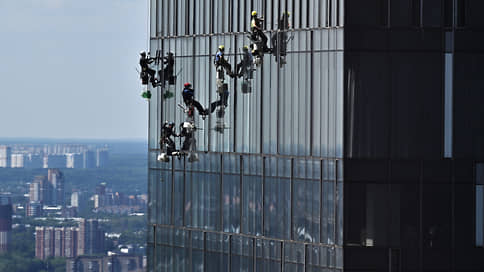State structures again became the main tenants and buyers of offices in Moscow
[ad_1]

The mass exit of foreign companies and the general uncertainty returned the Moscow office market to the situation of seven years ago, when government agencies were the main tenants and buyers of such real estate. This year, they will account for 32% of all transactions in the segment, or 600 thousand square meters. m, which is three times more than last year. Market participants hope that the growing interest of government agencies in space in business centers will reduce the amount of vacant space and even lead to an increase in rental rates.
This year, the share of the public sector may account for 32% of the total volume of lease and sale of offices, compared to 12% in 2022, CORE.XP predicts. In physical terms, the volume of transactions involving government agencies may reach a record 600 thousand square meters. m, exceeding by 58% the previous peak value of 2016 (380 thousand sq. m). NF Group partner Maria Zimina estimates the share of the public sector in the first half of 2023 at 22%, while for the same period last year it was 9%. Denis Bobkov, head of the marketing and analytics department at Asterus, does not rule out that the share of the public sector in the office absorption structure this year will be a record since 2014. Christina Nedrya, director of commercial management at Stone, names state-owned companies as the main drivers of the office market.
Since 2010, the share of the public sector accounted for about 10% of the absorption of office space per year, explains the head of the department of office real estate CORE.XP Irina Khoroshilova. But this is true only for quiet periods in the economy. For example, according to the expert, in 2015–2016, after the referendum in Crimea, state structures became more active on the market, which then concluded 33–36% of the total volume of transactions. So, in 2016, the Moscow City Hall bought 55 thousand square meters. m in the OKO tower in Moscow City. At the same time, significant areas in the business center were transferred to Rosselkhozbank and VTB, and in early 2017 federal officials moved to Moscow City. Similar deals are going on now. Recently it became known about the purchase by the capital’s mayor’s office of another 47 thousand square meters. m of the iCity complex under construction (see Kommersant dated July 21). About 14 thousand square meters. m in “Balchug Plaza” this year also rented Promsvyazbank.
Irina Khoroshilova expects to see other major deals in the segment this year. In her opinion, the public sector uses crisis periods to conclude deals on more favorable terms. Elena Medushushskaya, deputy director of the office real estate department at Nikoliers, calls this process generally positive: “On the one hand, state-owned companies improve the working conditions of their employees, on the other hand, they release buildings in the city center that will be given over to redevelopment.” Ms. Nedrya adds that government agencies often prefer buying to leasing, which allows them to fix expenses and not depend on the dynamics of rates.
Denis Bobkov draws attention to the fact that now in the total volume of transactions with offices, the share of the IT sector due to the departure of international companies has decreased this year to 20% against 30% a year earlier, and the share of companies from the services and consulting sector – up to 5% against 15%. Ms. Khoroshilova believes that the activity of the public sector has a positive effect on the development of the office segment, curbing the growth of vacancies and contributing to higher rates.
But not all objects are attractive to government agencies. Evgeny Mezhevikin, Pioneer’s director of analytics and marketing concepts, points out that they are considering mainly large areas. “As a rule, they acquire entire buildings or blocks of several floors, consolidating their structures within one cluster,” says Vasily Kvlividze, commercial director of Coldy. Such purchases, in his opinion, are often planned several years in advance. Denis Bobkov adds that government agencies also impose specific requirements on the buildings themselves: the presence of a dining room, separate elevator groups for management, the ability to organize office seating, a separate area for top management.
[ad_2]
Source link





